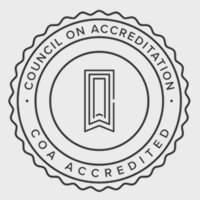Have you ever wanted something to be true you are willing to tell yourself whatever is needed in order to believe it? And anything that does not fit into your reality, you ignore? Most will answer no, or if this happens, it is not intentional. This is a typical example of cognitive bias (CB), which happens automatically and naturally, and at times without conscious realization.

Different experiences, values, and beliefs help shape us and influence the ways we think and our perspective. Thinking is about processing and interpreting information including the world, others and ourselves. At times errors in thinking result in decisions and judgements, which are a direct result of our cognitive biases. We create our own reality based on subjective interpretation and not facts.
CB has always existed, but recent headlines, including but not limited to racism, sexualism, and other forms of discrimination have been amplified by biases and are creating concerns in need of reconciling. A societal CB heightened lately is that Black Lives Matter means that no other lives do; in reality, this is not true. The Black Lives Matter movement is attempting to help overcome racism, oppression and inequality. The perspective of no other lives don’t is a direct result of a CB.
In social circles, the people we surround ourselves with influence our biases, sometimes through peer pressure. That striking reality takes me back to when I was a teenager, thinking I had to do what my friend did in order to be “cool”. Being cool got me in to trouble more often than not. I realize now, my own thoughts affected my behaviors, and my relationships. I would try to analyze behaviors from others, and realize know that caused me to interact differently towards them and surely led to disagreements base on misinterpretations and misrepresentations. Worth noting is the affect cognitive bias can have on us, the person having the thoughts. Anxiety, depression, worry, and inaccurate decision-making are all byproducts.
Make change to your own CB’s by being aware of them, and how the thoughts resulted. There are a number of ways to become more self-aware. Implicit Association Test through Harvard: https://implicit.harvard.edu/implicit is a great place to start, finding similar self-assessment questionnaires online works too. Another idea is journaling your thoughts with the commitment to explore where they are coming from by, focusing on facts and not just opinion.
Open minds complimented with a willingness to ask questions and learn is helpful too. Never assume you understand the behavior of others or their thoughts without asking them for their why. Surrounding yourself with people who are open to conversation and debate on sensitive issues is helpful too. Understand that in the end, it may be okay to agree to disagree, which can be done respectfully after gaining perspective. Additionally, be open-minded and push yourself to learn and grow. Do your homework and understand a topic and all sides to the story before you take a stand or make up your mind about where you stand. CB will always exist, it is inherit. Our learned responses are the only way to challenge our thoughts.
Copyright (2021) Written by Holly Miller, LMHC, MS, Outpatient Clinical Therapist.


